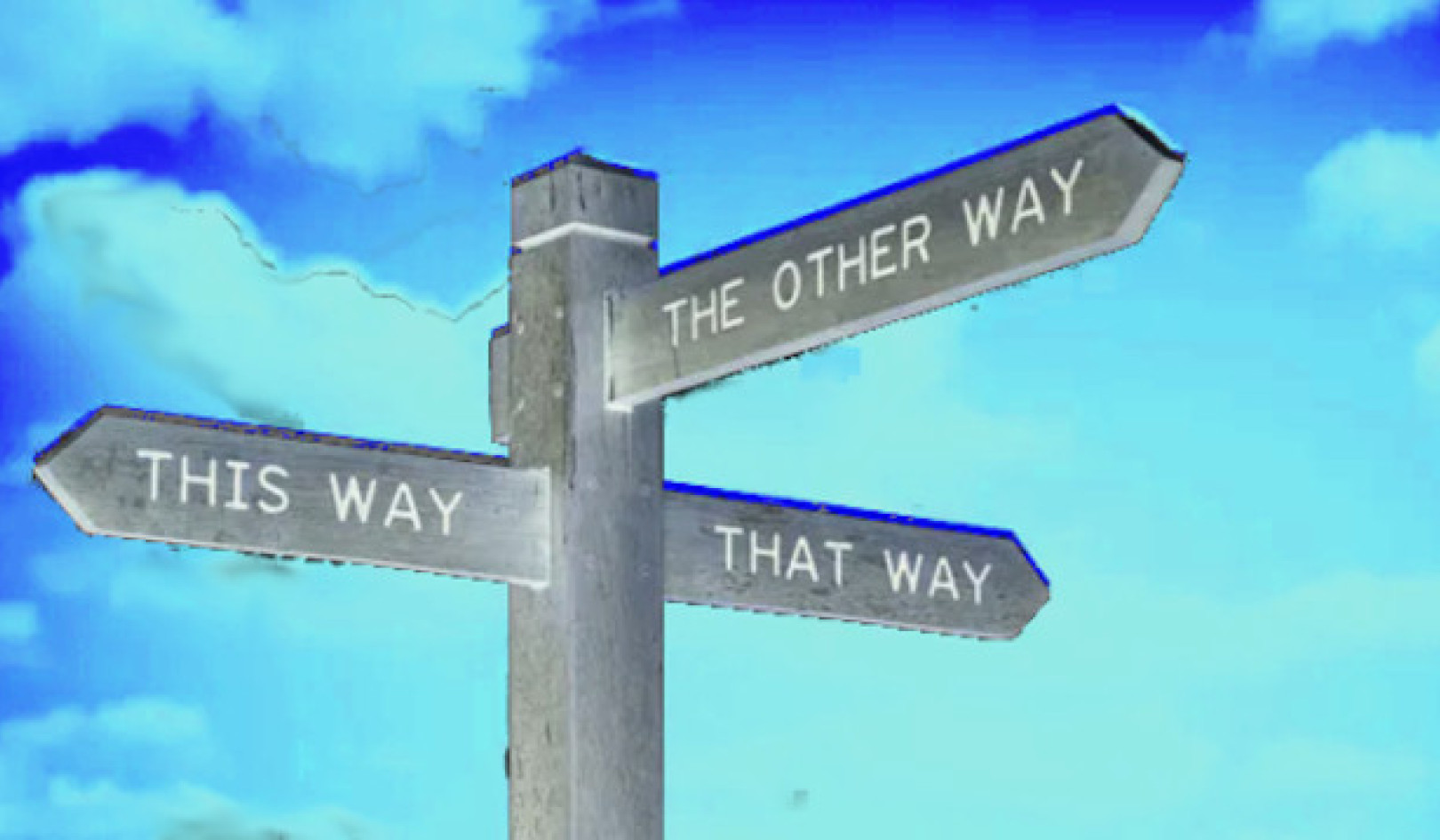
Since 1970, the number of people who live to 100 or over has doubled every decade. A newspaper article in 1996 featured several of these remarkable people across the country. A 100-year-old woman in Missouri worked 40 hours a week as a columnist and proofreader on an Independence newspaper. Another woman, 102, who lived in California, maintained a mountaintop studio where she created artwork and pottery displayed in galleries and museums around the world.
A more recent national study of centenarians shows they are active, socially involved, surprisingly healthy, and interested in many activities. At 105, one woman wrote her memoirs and continues to write, and at 106 another holds the world record for shot put and competes in the Senior Games. As the director of the Alliance for Aging Research commented, “The centenarians are helping to stretch our sense of human potential. If people live to 100, how can you think of a person as ‘used up’ at 65?”
“Too Late” Is Only A State Of Mind
We mark and dread “the big This-0, the big That-0,” as if each turn is a milestone of dread. When I was about 12, a neighbor’s daughter turned 19. I looked at her and thought, Disgusting! I never want to be that old! Here I am, at a decades-later 0, and more active, healthy, productive (and publishing) than ever.
For every terminal couch potato, there’s another person, probably older than you, who has cast off a mislabeled past history and is living life wholly, vibrantly, victoriously. They didn’t accept that it was “too late” to do what they wanted to do.
Time To Attain Your Lifelong Goal
Stan was 77 when he came to me for help with his doctoral coursework and looked forward to our working together on his dissertation. Stan didn’t let his age deter his lifelong goal of getting a Ph.D. “I’ve had this Dream,” he said, “all my life. No one in my family ever even went to college, and I told myself I was going to get the highest degree they gave.” He’d been a successful businessman, but the Dream never left him. When he retired from business, he began graduate school.
Stan said he’d like to complete it in a year, and if he didn’t, it was all right.
“After all,” he chuckled, “I’ve got time.” He meant it.
Stan saw no barriers or boundaries of age, limitation or energy. Apparently the university that accepted him didn’t either.
Returning to Your Early Years' Passion
A former client, whom I worked with on his master’s degree, has become a good friend and role model to many. When David Johnson at age 71 was awarded a master’s in social work, he decided not to continue to the doctorate but to return to a passion he’d had from his early teens. After practicing social work for several years on the East Coast, he moved back to California, where, at age 21, he’d been the first African American to study with Ansel Adams at the California School of Fine Arts.
David had never stopped photographing, and after several detours (although not mistakes, as we know), he resumed his boyhood Dream. Johnson’s photographic career spans more than 60 years, and he has become increasingly well-known as a premier photographic historian of the many aspects of African American culture.
Having acquired gallery representation in 2008, David has been featured in several books on the Fillmore District and Ansel Adams, has had many shows, is the subject of newspaper articles and a documentary on his life, and continues exhibiting photographs. Five of his photographs are in the Library of Congress in Washington, D.C. In 2009, on his 83rd birthday, David got married. He and his wife, an author, are extremely happy and working on his autobiography together.
This bio is not a commercial for David (although he certainly deserves it). His story is meant to show you an octogenarian who’s broken the senior ceiling. A few years ago, he came East to arrange several shows. When we met for lunch, he looked at least 20 years younger than his age, walked straight and tall with a lively step, and carried a large portfolio like it was a single negative.
Your Dreams Don’t Go Away
Ignoring chronology, David Johnson continues his drive to expand and create (his latest project is learning Spanish). He not only excels at his profession but also shares his expertise and wisdom with younger artists. He proves that expansion of learning, enhancement of craft, and the drive to create and contribute know no age boundaries.
Johnson clearly articulates and continues his legacy of the African-American experience. He may not have envisioned his additional legacy—as an inspiration to others of every race, age and creative field. (Update: Having recently celebrated his 90th birthday, with a roomful of friends and well-wishers, David continues to inspire. He is as active as ever and exhibiting his work.)
David Johnson and others I’ve told you about prove that our Dreams don’t vanish with the years. Julia Cameron, creativity expert and coach, says that if at 20 you want to write a novel, you’ll still want to write it at 80.
Your Dreams don’t go away. They just go underground and keep resurfacing until you’re ready.
An Ageless Principle
When you trust your life, and God’s timetable, you’ll realize, with relief, joy and enthusiasm, that there’s no such thing as too late. A time-honored quote by the novelist George Eliot should be tattooed on the forehead of everyone over the age of 5: “It is never too late to be what you might have been.”
The Unity author and minister Martha Smock counsels us with comfort about our "too late" convictions. In her essay "It Is Never Too Late," she writes:
Those who condemn themselves for past actions or failures need to know that it is never too late to be forgiven, to be set free. It is never too late to let go of old ways and begin again.... It is never too late to begin. What has gone before—age, years, doubts, or self condemnation—none of these things can deter or dismay us when we live and act on faith.
Herman Cain, the successful businessman, founder of Godfather’s Pizza, speaker and author, never accepted any too?late ideas. Coming from a background of poverty, he rose to executive positions in several companies (his first vice-presidency was at age 34 at the Pillsbury Company), gained national success in business and speaking, and published three books. But Cain felt destined for greater contributions. He looked inside himself for his “new purpose,” as he said, and his answer came.
What Can I Do To Make This A Better World?
As he held his 15-minute-old first granddaughter, he thought, What do I do to make this a better world? So at age 51, Cain entered the ministry, and four years later founded and continues to oversee centers throughout the country to help at-risk young people in academics, social skills and spiritual development. At 58, he ran for the Senate in Georgia, and in 2012 ran for nomination for U.S. president.
Cain demonstrates that we never need to accept conventions of age, notions of impossibility, or even satisfaction with accomplishments. He completely resisted and rejected the stealthy, apparently incontrovertible beliefs that so many people catch like the flu. They all begin with “You get to be a certain age and ...
- You’re supposed to think only of retirement.
- You’re supposed to start getting all kinds of ailments.
- You’re not supposed to entertain the idea of doing all kinds of things, much less break new ground.
- You’re supposed to give up your Dream and wail, “It’s too late!”
Who says? Don’t the people mentioned in this essay, and I’m sure others you can think of, prove the opposite? Age may be a chronological fact, but that doesn’t mean we have to accept all the usual labels, constraints, restrictions and limiting beliefs and assumptions that our society has enshrined. They are powerless—if we make up our minds that they are.
There’s more hope. In her book The Age of Miracles, Marianne Williamson, the spiritual teacher and illuminator of A Course in Miracles, discusses the growing new attitudes toward middle age, and her words apply as well to more-than middle age:
What is new is how many of us are reaching for some thing outside [middle age’s] culturally prescribed norms.... We can forge a new vision, a new conversation, to take us beyond the limited thought-forms that have defined its parameters for generations.
In support, Deepak Chopra expands on these ideas in a wonderful book whose title can serve as a mantra for all of us. In Ageless Body, Timeless Mind, he writes:
You are much more than your limited body, ego, and personality. The rules of cause and effect as you accept them have squeezed you into the volume of a body and the span of a lifetime. In reality, the field of human life is open and unbounded.... Once you identify with that reality ... aging will fundamentally change.
Think about these words. They are true to the degree that you accept them. The examples given above show how “open and unbounded” life can be. I’ve often heard older people—and you may feel this way yourself—proclaim that they may look a certain age but they feel like 30. A 76-year-old neighbor has a boyfriend 15 years her junior. She told me, slightly blushing, “I’m really a teenager.”
If You Feel Young, How Can It Ever Be Too Late?
Maybe you still feel it’s too late, thinking about choices and changes you had. Read Martha Smock again:
The old saying that opportunity knocks only once has been disproved again and again by people who have risen to make a new life, a new start. The opportunity that passed them by or that they passed by was not the only one.
There are always undreamed-of opportunities before us. There are always new paths and new doors opening before us.
Smock suggests how we can activate this new conviction:
Rather than sitting back and thinking, “It is too late for me now; it is too late for my life to change; it is too late for me to be the successful person I dreamed of being,” say to yourself: “It is never too late for God. There is always a way, there is always the power in me to begin again.”
So I invite you, whatever your age and self-stereotype, ignore them. What do you really want to do? It is not too late to start—now.
©2011 by Noelle Sterne, Ph.D. Reprinted with permission.
Published by Unity Books, Unity Village, MO 64065-0001.
Subtitles by InnerSelf.
Article Source
 Trust Your Life: Forgive Yourself and Go After Your Dreams
Trust Your Life: Forgive Yourself and Go After Your Dreams
by Noelle Sterne.
Click here for more info and/or to order this book.
About the Author
 Noelle Sterne is an author, editor, writing coach, and spiritual counselor. She publishes writing craft articles, spiritual pieces, essays, and fiction in print, online periodicals, and blog sites. Her book Trust Your Life contains examples from her academic editorial practice, writing, and other aspects of life to help readers release regrets, relabel their past, and reach their lifelong yearnings. Her book for doctoral candidates has a forthright spiritual component and deals with often overlooked or ignored but crucial aspects that can seriously prolong their agony: Challenges in Writing Your Dissertation: Coping With the Emotional, Interpersonal, and Spiritual Struggles (September 2015). Excerpts from this book continue to be published in academic magazines and blogs. Visit Noelle's website: www.trustyourlifenow.com
Noelle Sterne is an author, editor, writing coach, and spiritual counselor. She publishes writing craft articles, spiritual pieces, essays, and fiction in print, online periodicals, and blog sites. Her book Trust Your Life contains examples from her academic editorial practice, writing, and other aspects of life to help readers release regrets, relabel their past, and reach their lifelong yearnings. Her book for doctoral candidates has a forthright spiritual component and deals with often overlooked or ignored but crucial aspects that can seriously prolong their agony: Challenges in Writing Your Dissertation: Coping With the Emotional, Interpersonal, and Spiritual Struggles (September 2015). Excerpts from this book continue to be published in academic magazines and blogs. Visit Noelle's website: www.trustyourlifenow.com
Listen to a webinar: Webinar: Trust Your Life, Forgive Yourself, and Go After Your Dreams (with Noelle Sterne)




























